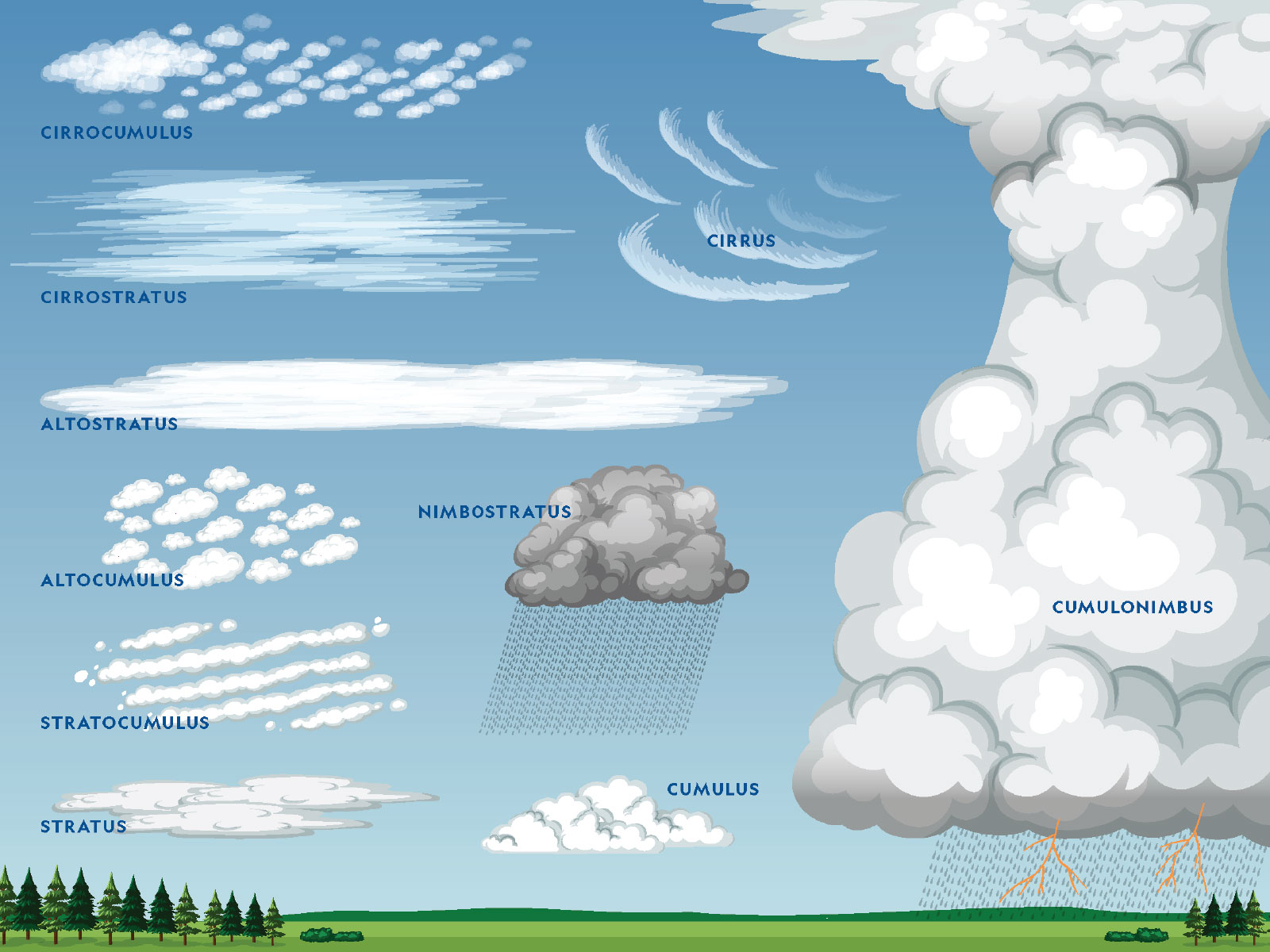Walters Wisdom Clouds and Fog: Academics
1/16
There's no tags or description
Looks like no tags are added yet.
Name | Mastery | Learn | Test | Matching | Spaced | Call with Kai |
|---|
No analytics yet
Send a link to your students to track their progress
17 Terms
THREE Basic “cloud types”
Cirrus (Wispy)
Cumulus (Heaped-Up)
Stratus (Layered)
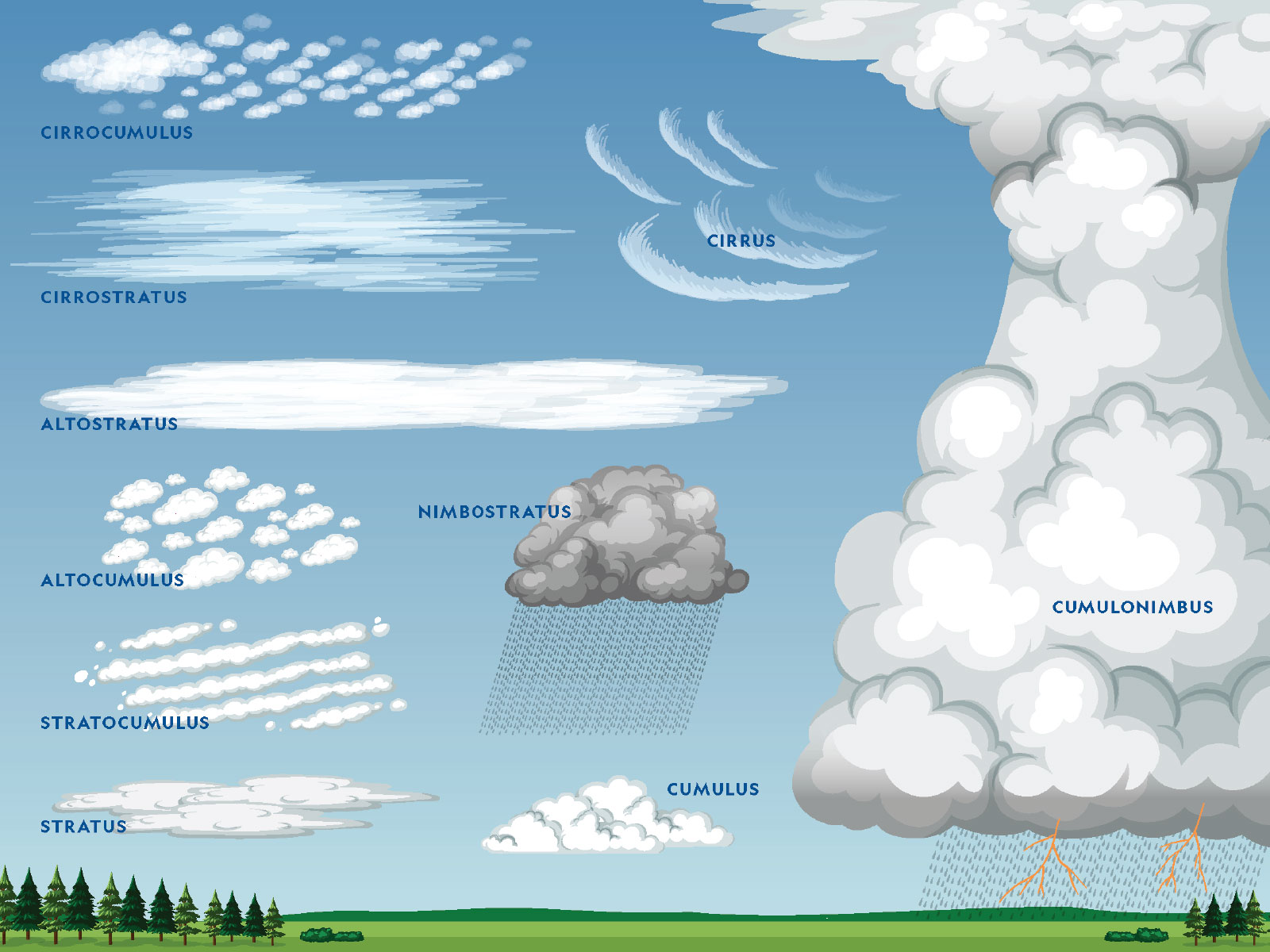
COMBINATION Cloud Types
Nimbus (Rain)
Alto (High)
Fracto (Describing fragmented or windlown clouds)
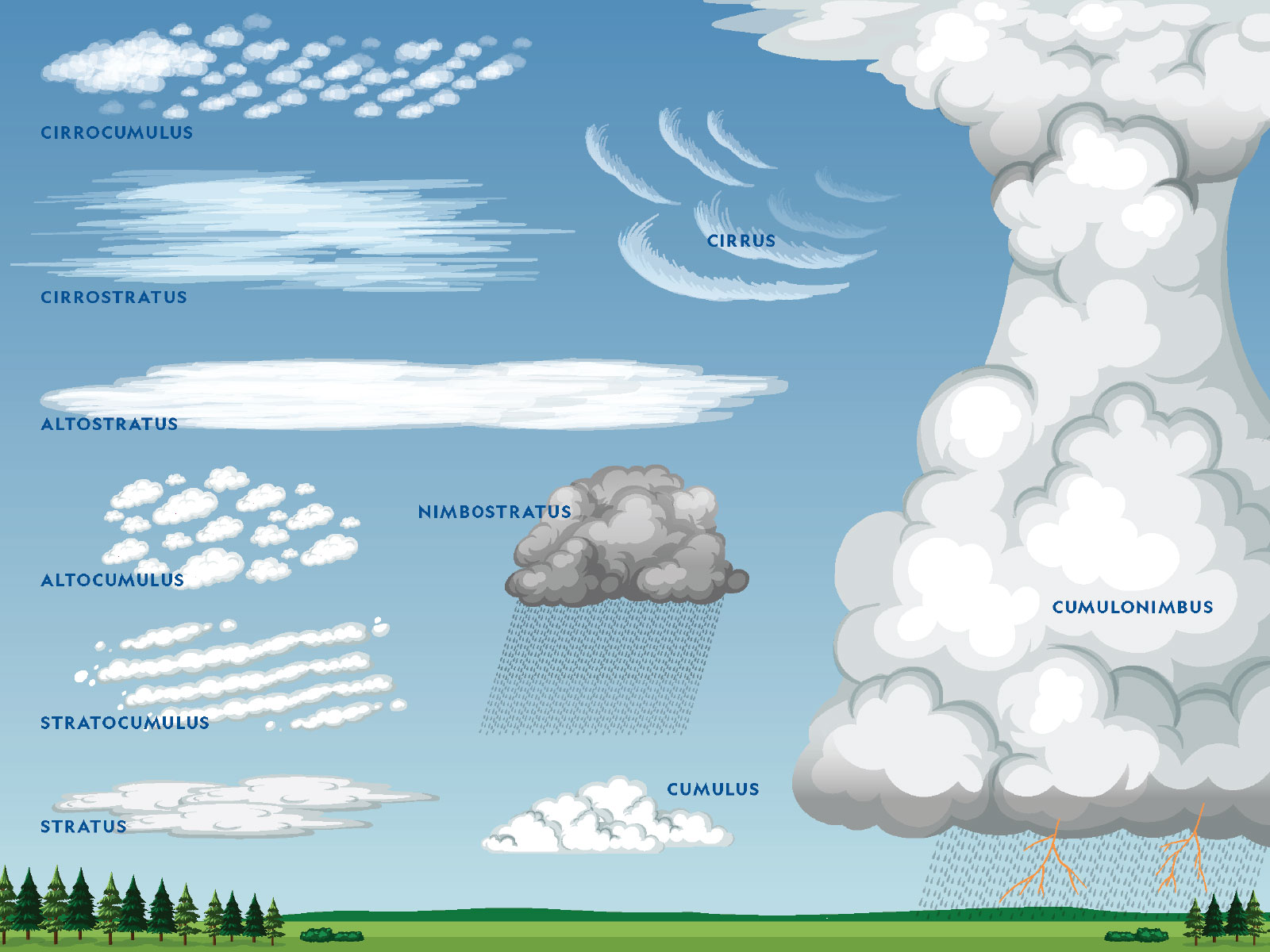
How to classify clouds?
By their altitude:
Low Clouds - 7,000ft
Middle Clouds - 7,000ft-20,000ft
High Clouds - 20,000ft
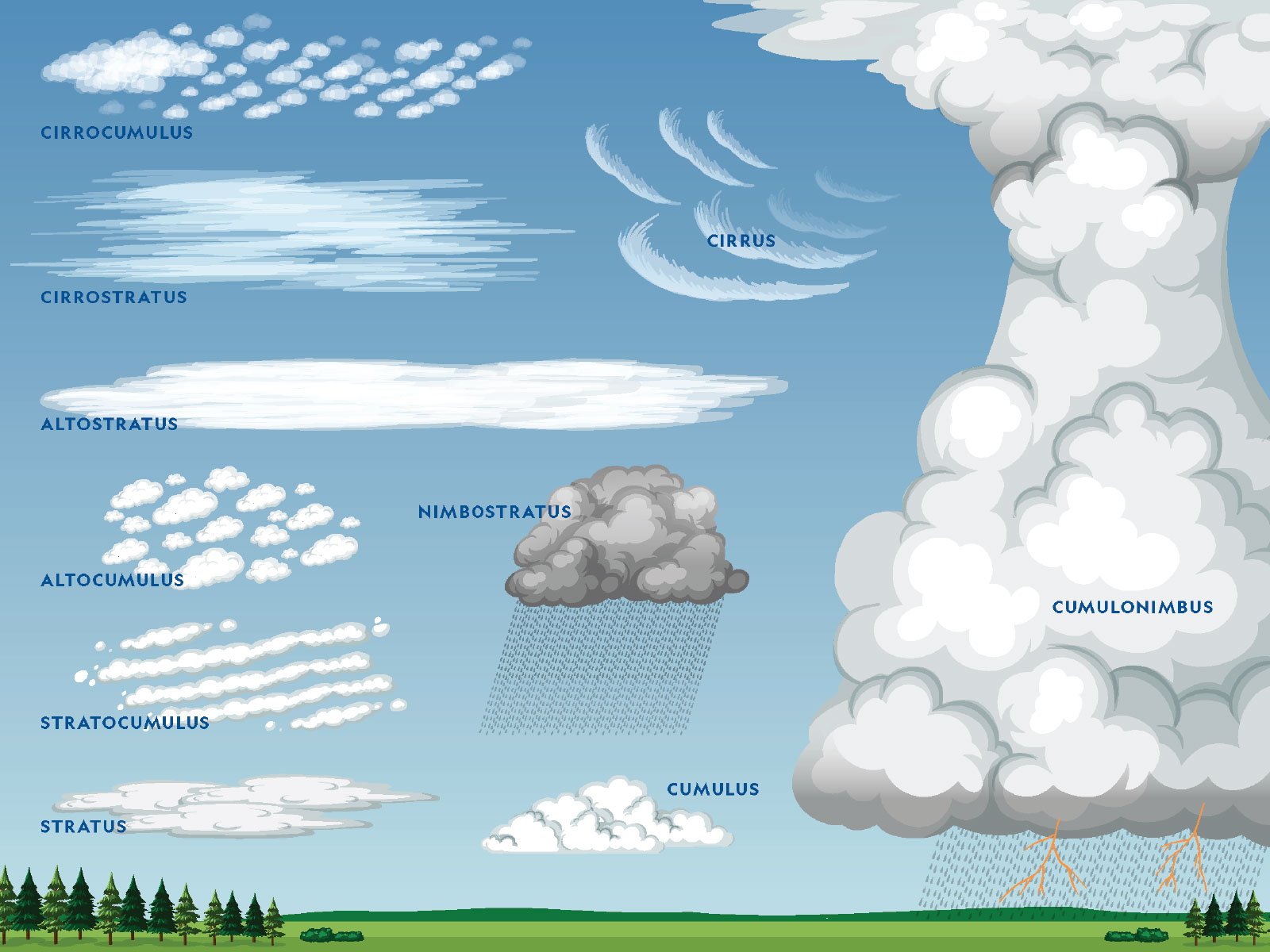
(LOW CLOUDS) Stratus Cloud
lowest cloud type; fog comes when this cloud lifts
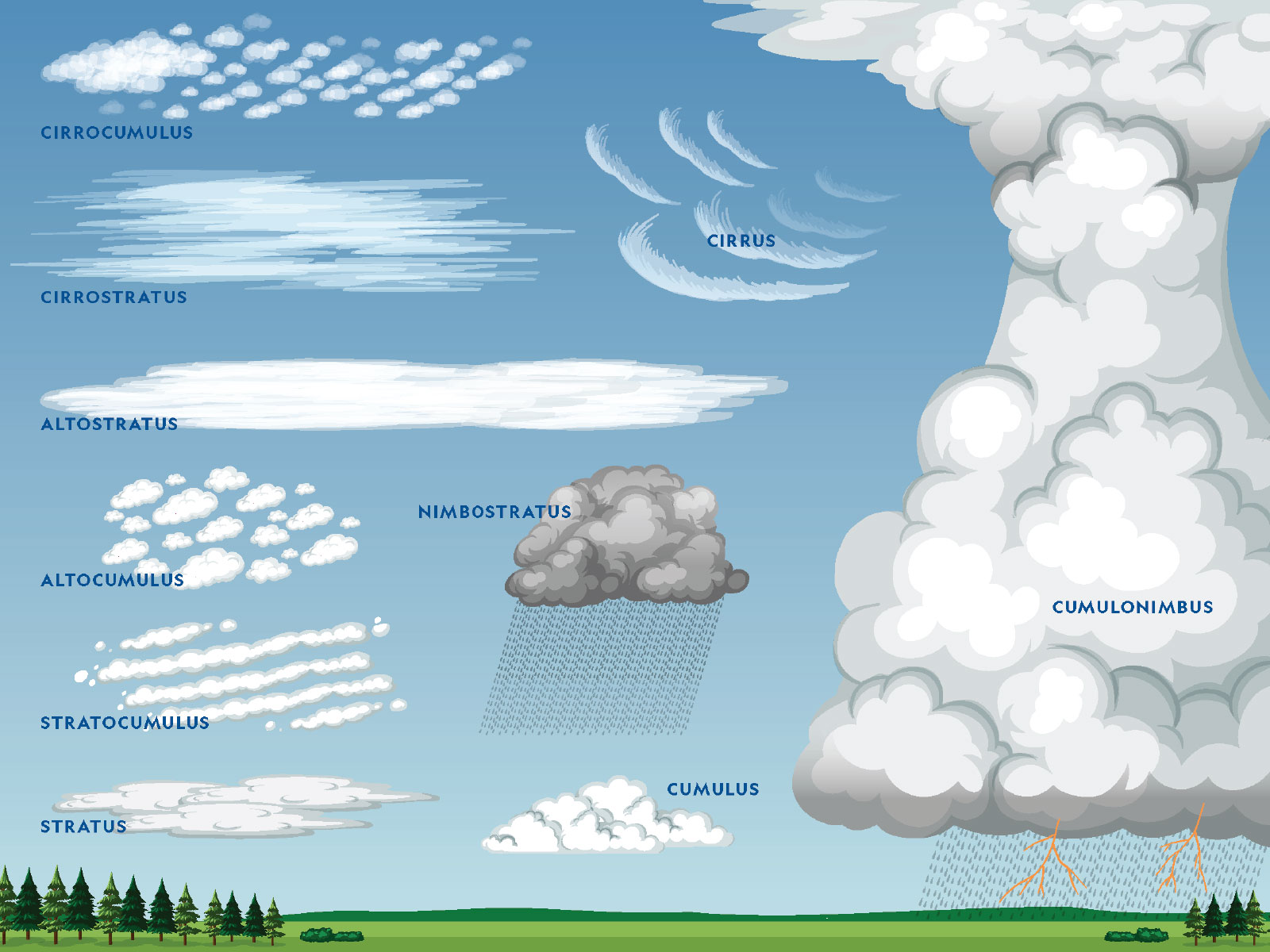
(LOW CLOUDS) Nimbostratus Clouds
Dark, shapeless clouds; true rain clouds , often seen in summer
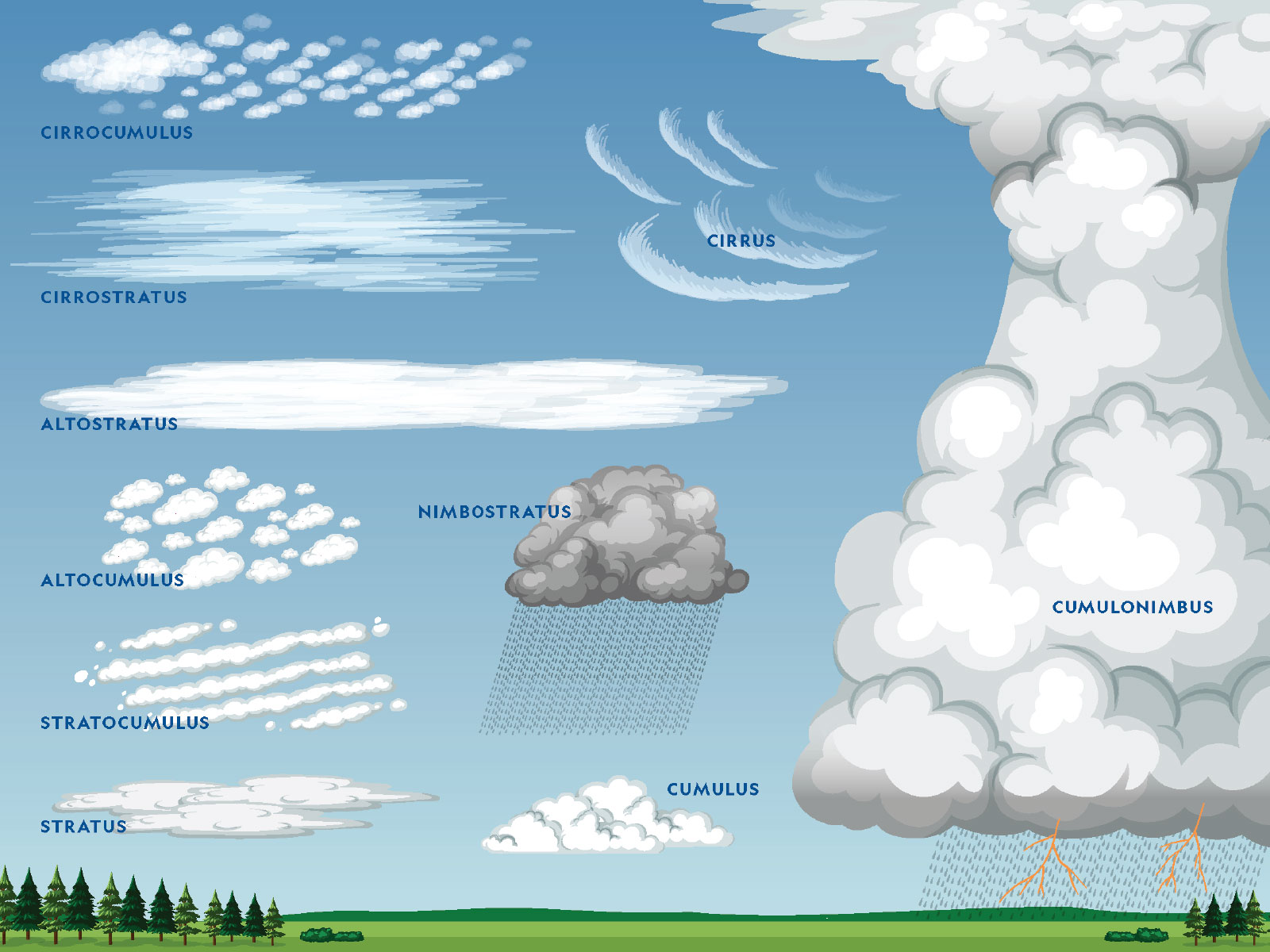
(LOW CLOUDS) Stratocumulus Clouds
Irregular, rounded masses spread in puffy/ rolling layers, no rain, but usually change into nimbo stratus clouds
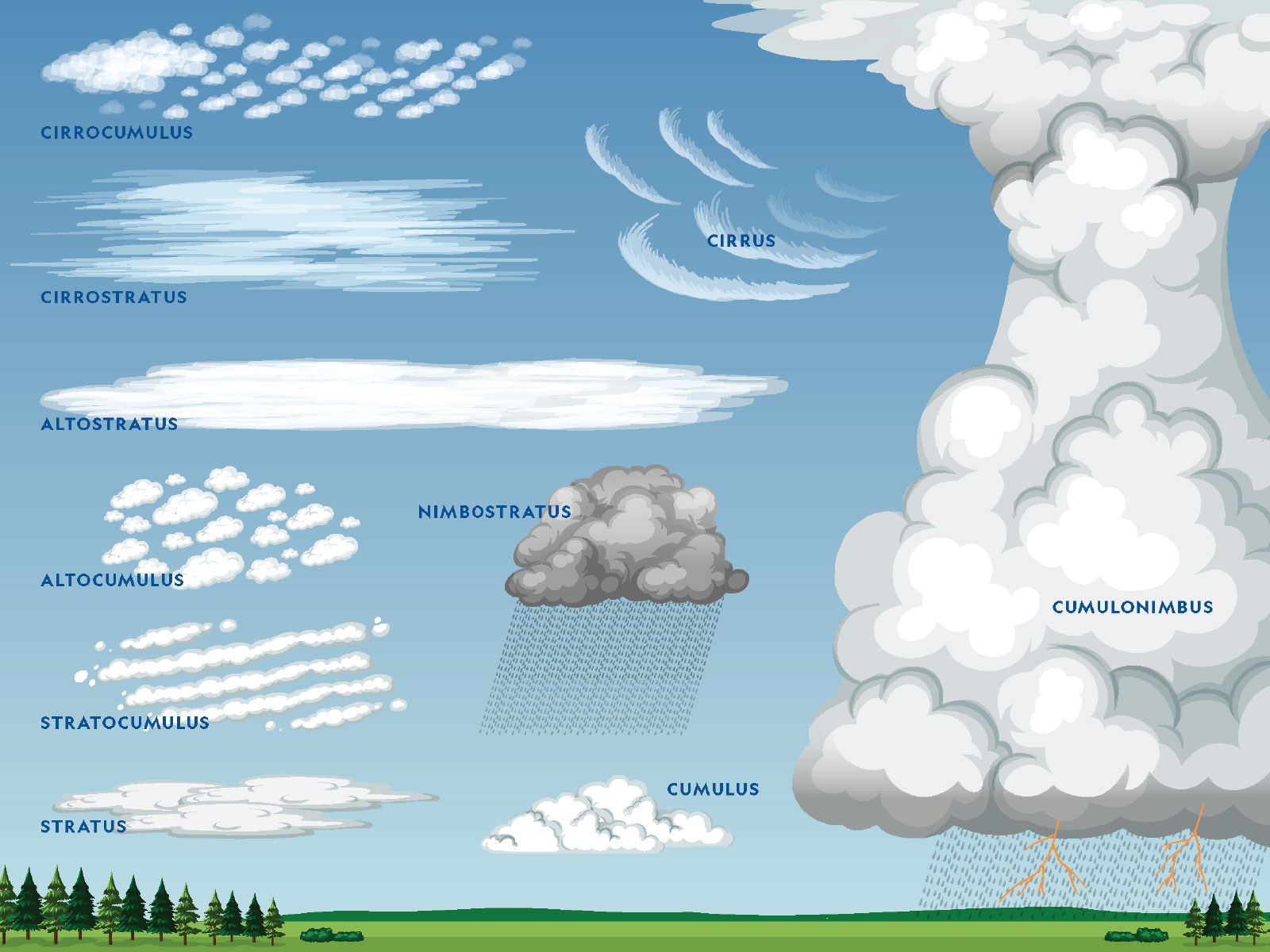
(LOW CLOUDS) Cumulus
Dense, puffy clouds with a cauliflower appearance, (Giant cotton
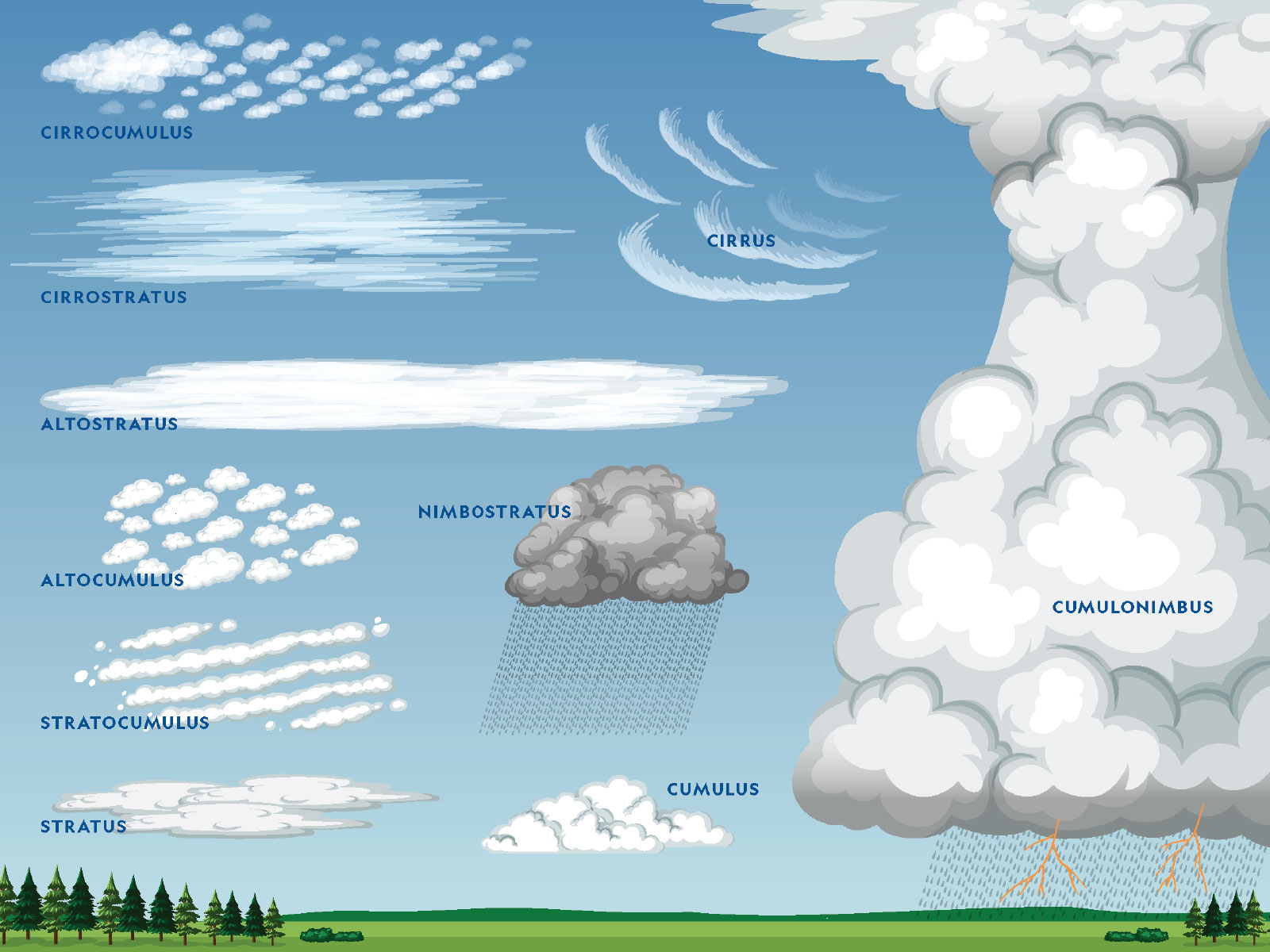
(LOW CLOUDS) Thunderclouds
Reaches heights of 75,000ft; also known as cumulonimbus clouds. Very dark clouds, carry rain and destructive storms.
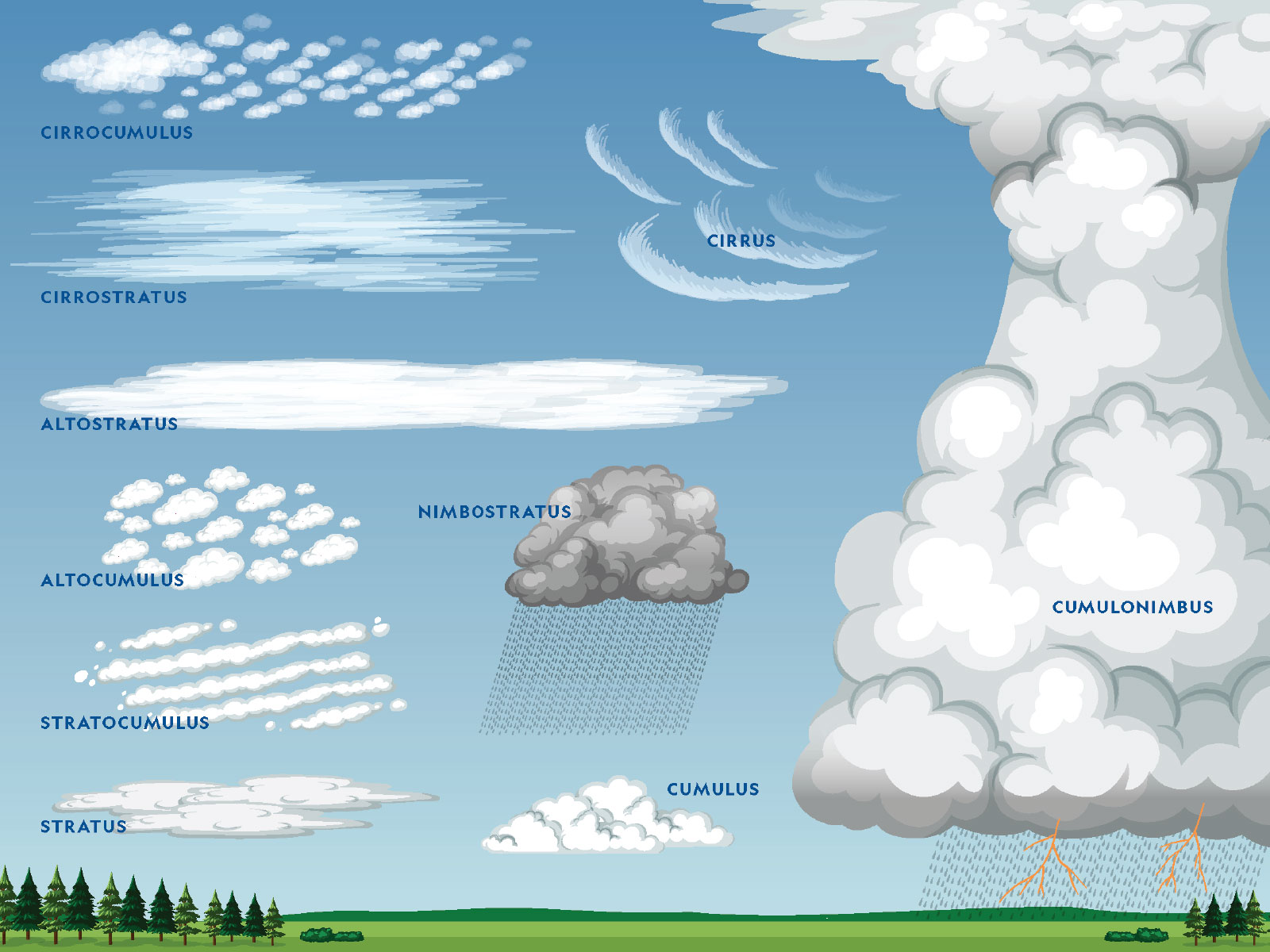
(MIDDLE CLOUDS) Altocumulus Clouds
Gray or whitish layers of puffy, fleecy clouds, made out of water droplets and usually change into nimbostratus clouds
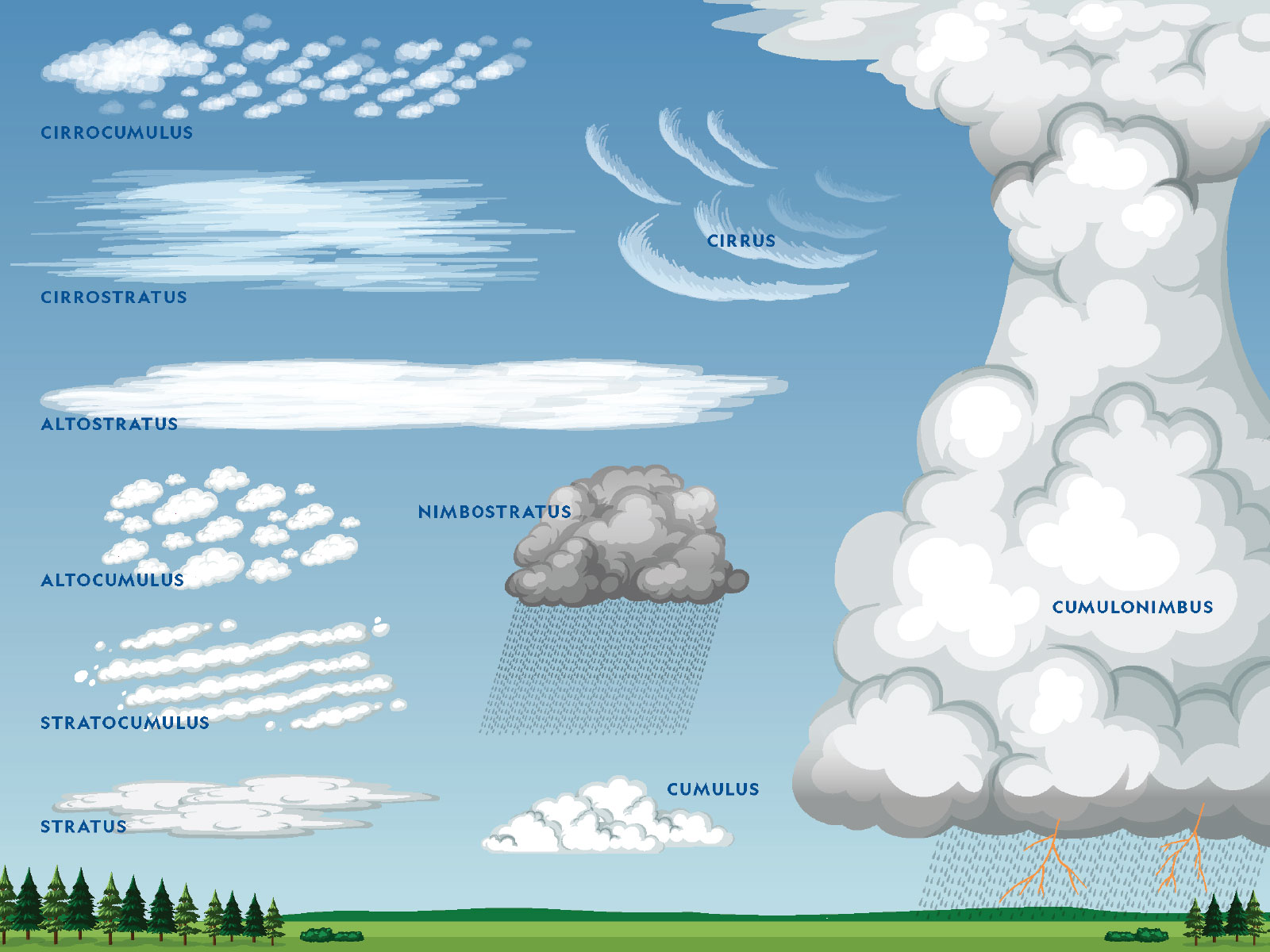
(MIDDLE CLOUDS) Altostratus Clouds
Dense sheets of gray or blue, sometimes looking like flattened vapor trails.
Prescence means light rain within 24 hours.
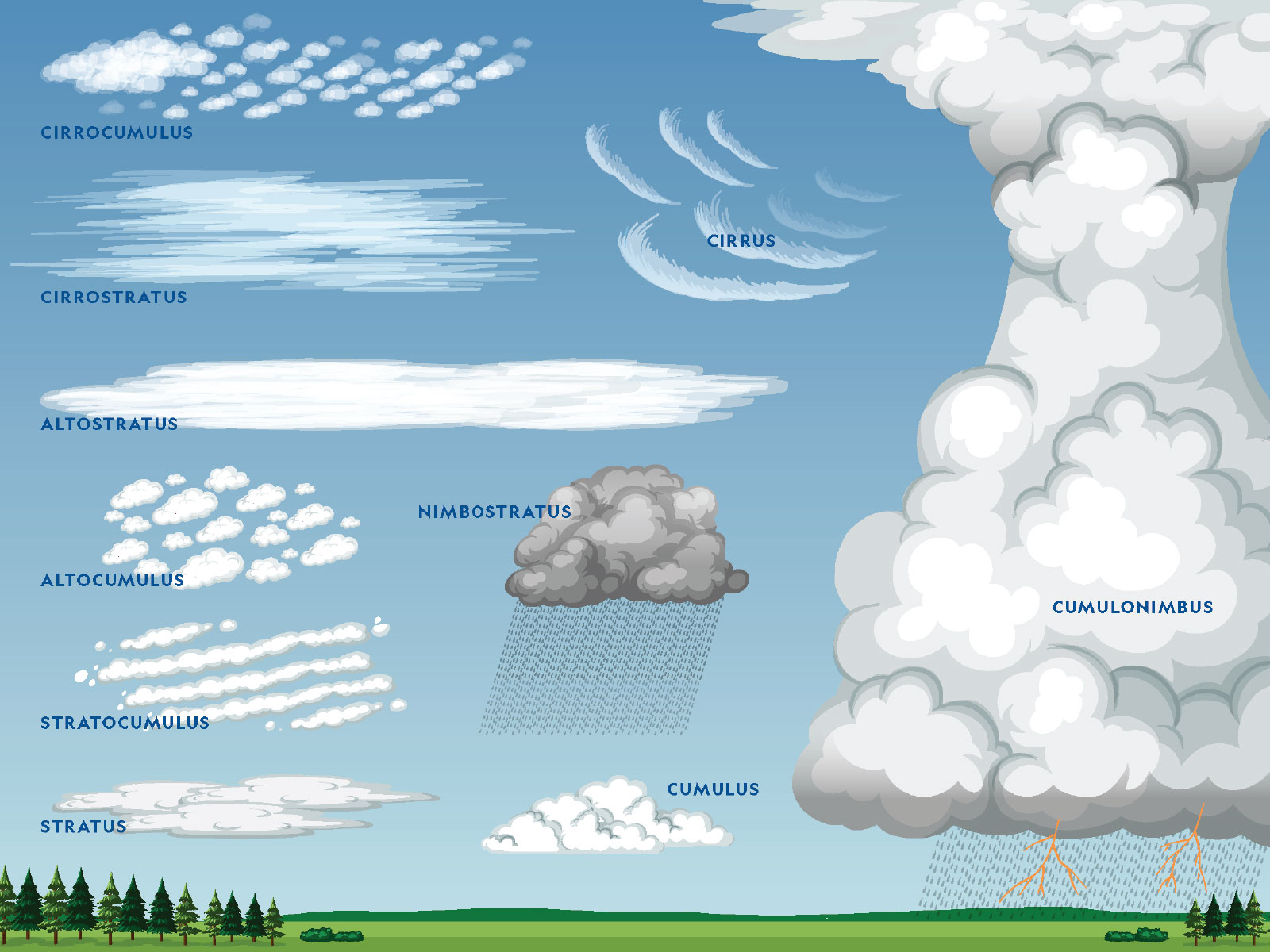
(HIGH CLOUDS) Cirrus
Thin, Wispy clouds composed mainly of ice crystals= “Mare’s Tales” when in scattered patches.
indicates cold, clear weather.
if in parallel lines in sky, means 36 hrs there will be a violent change in weather
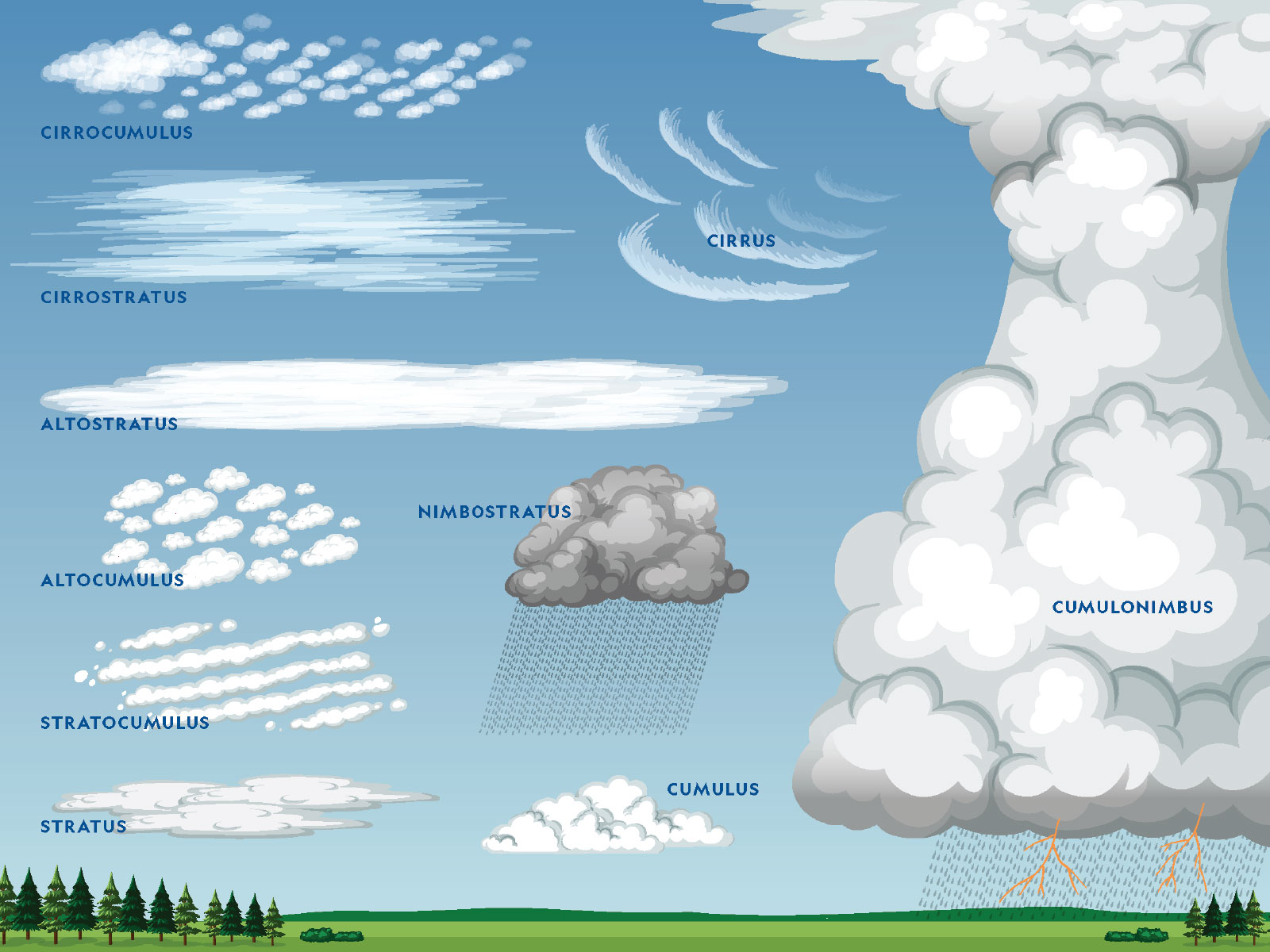
(HIGH CLOUDS) Cirrostratus Clouds
cover whole sky with filmy paste; edges have curly
composed of ice crystals
usually form halos around sun or moon
indicates cool weather
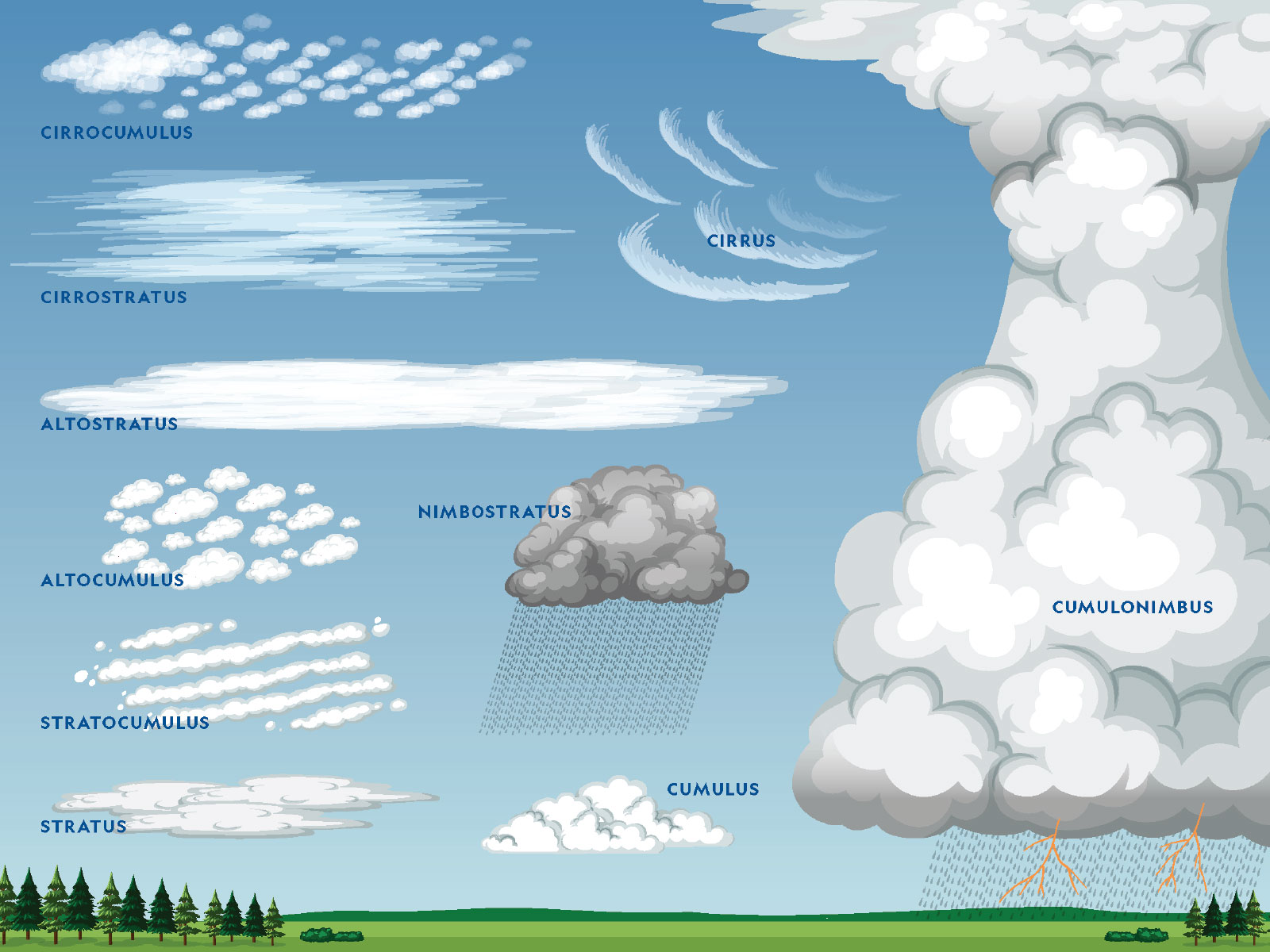
(HIGH CLOUDS) Cirrocumulus Clouds
thin, patchy clouds, often have wavelike patterns
no shadow on Earth
there will be precipitation
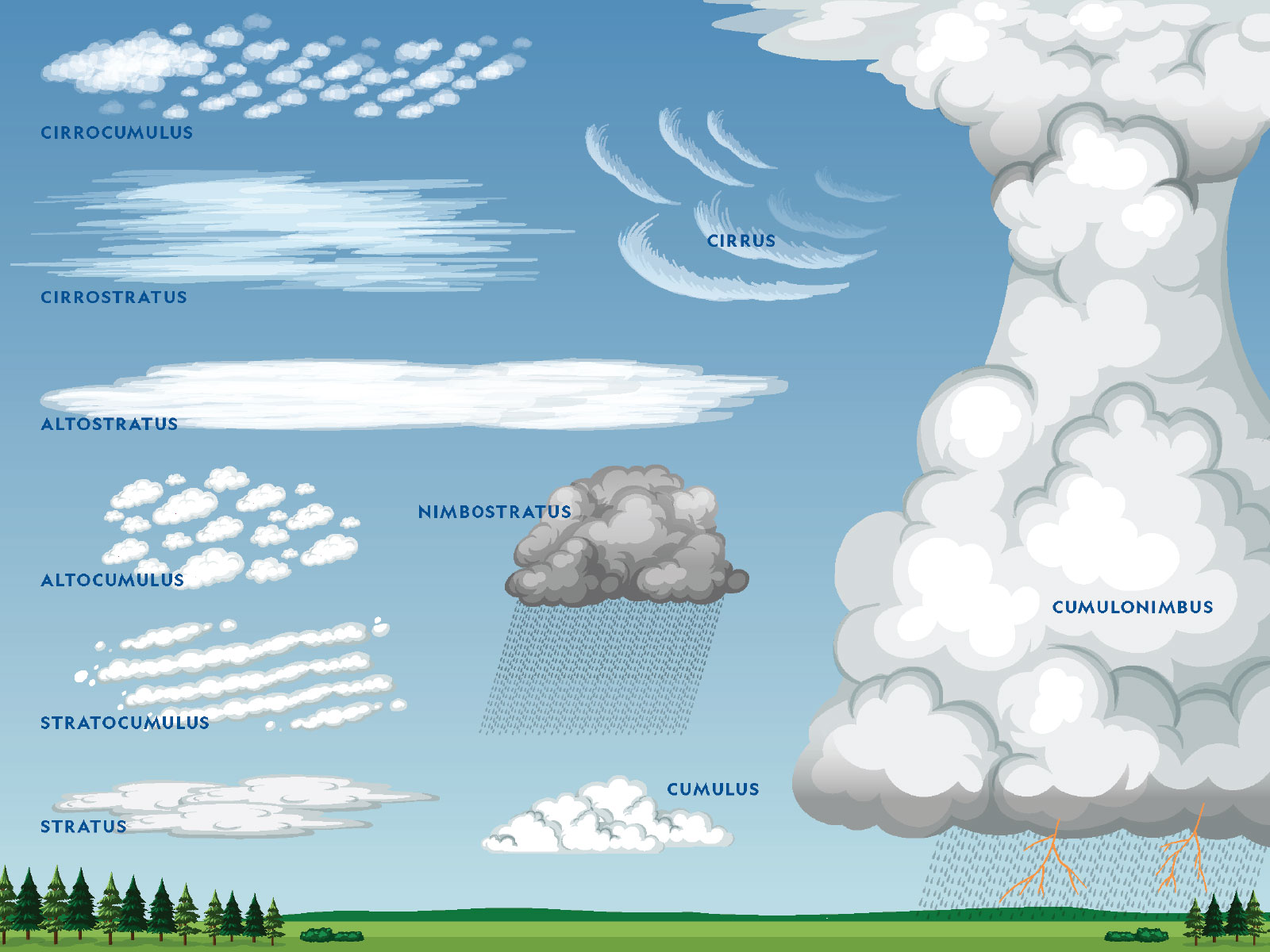
Fog
low-lying cloud that is near/touching Earth’s surface
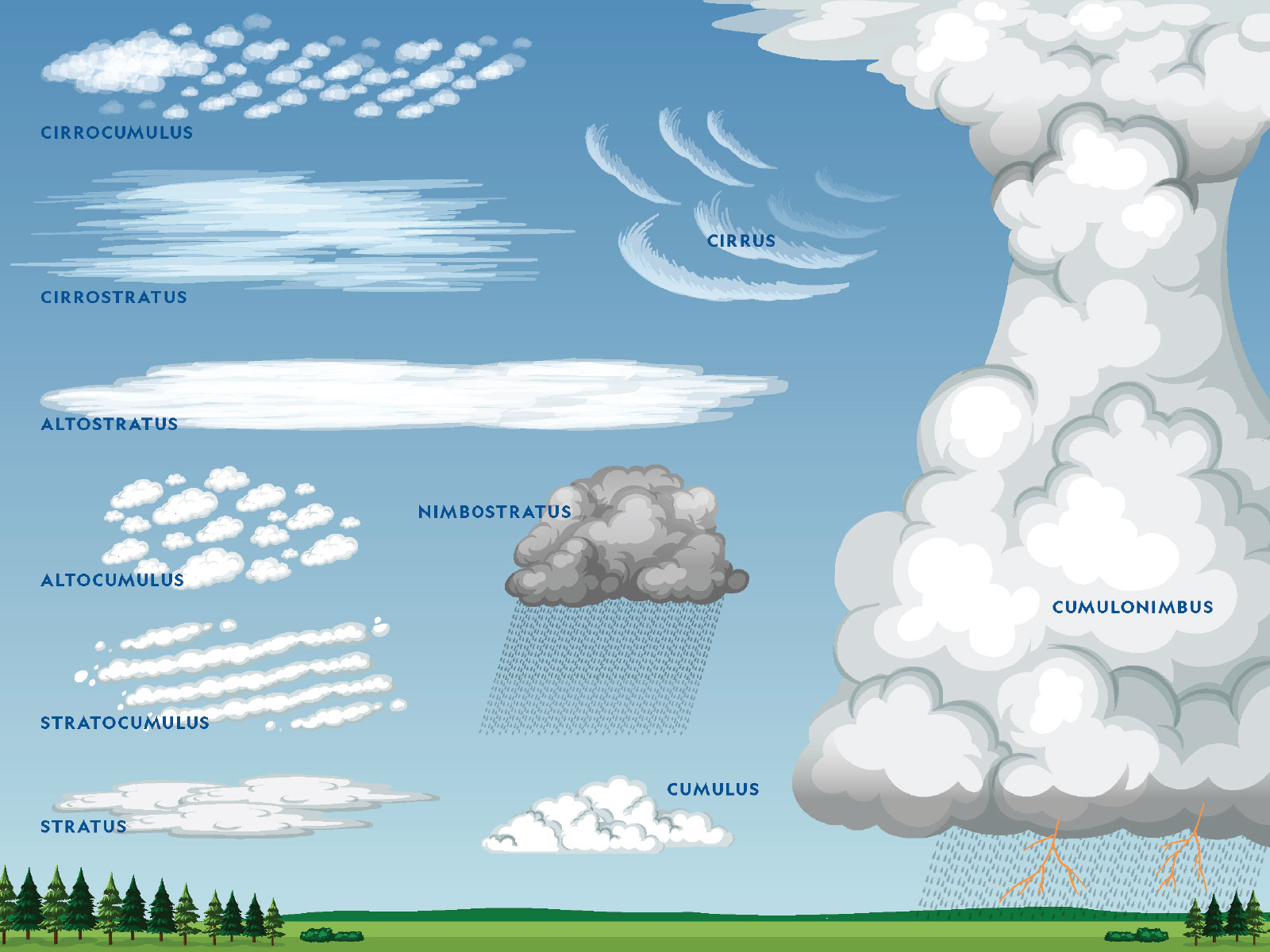
Advection Fog
fog produced by air in motion or fog that’s formed in one place and transported by wind to another. This occurs when wind moves warm, moist air to cool, dry air, or vice versa
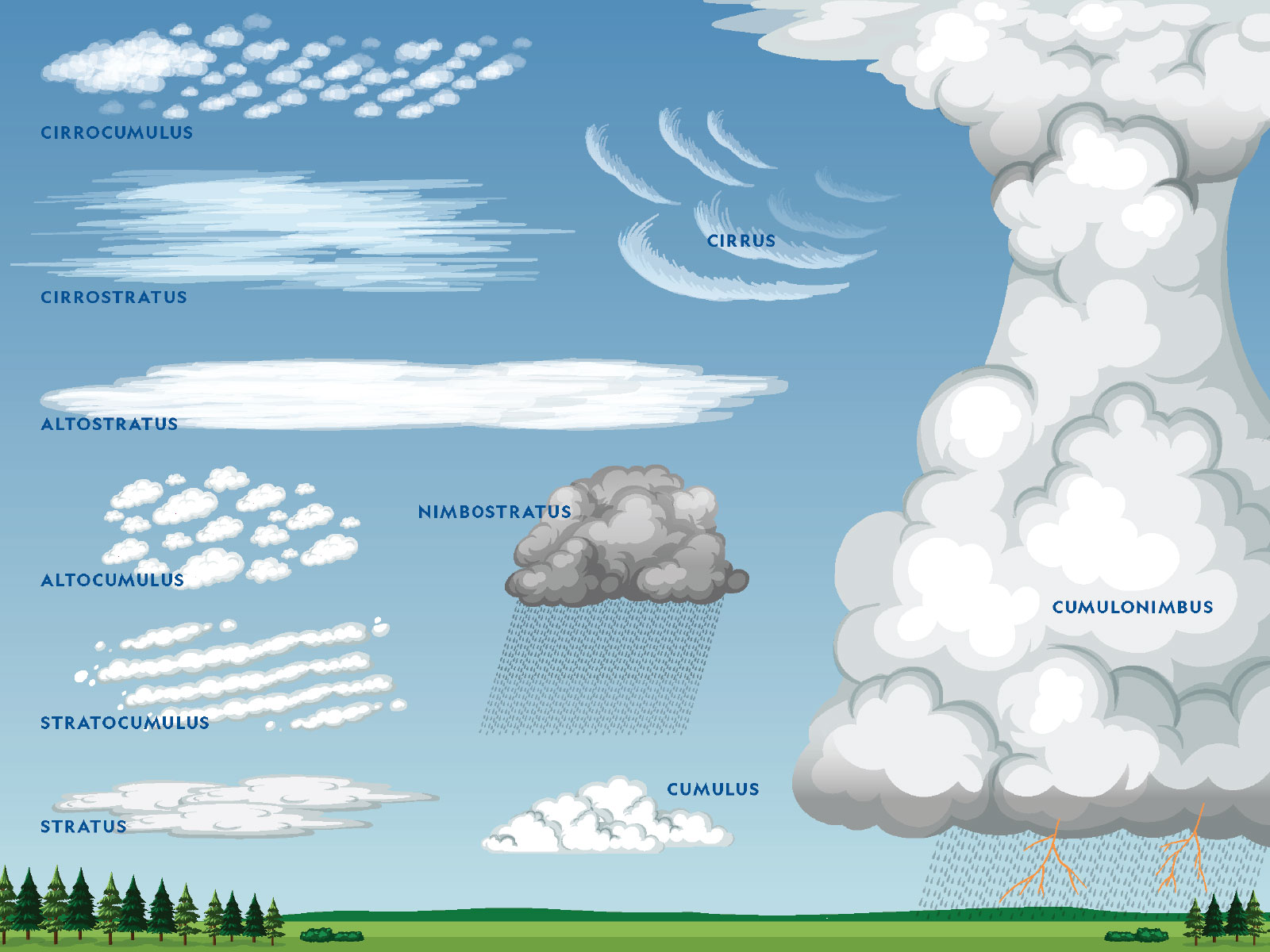
Steam Fog
type of AVECTION fog formed by air saturation. Occurs when cold air moves over warm water. Water evaporating from this warm surface easily saturates the cold air, thus producing steam fog. Steam fog in the North is often called “sea smoke”
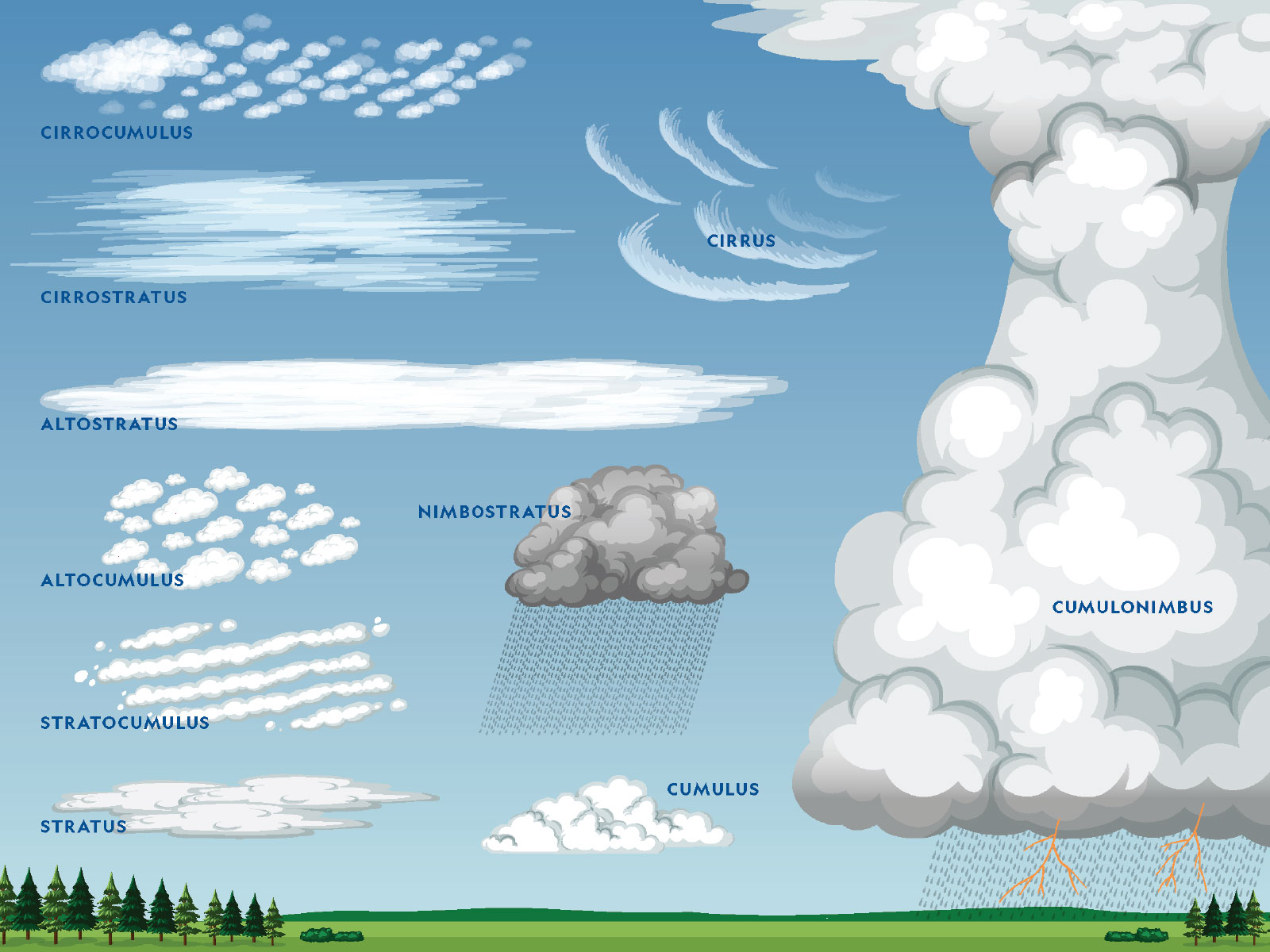
Radiation Fog
caused by heat that radiates from Earth’s surface, this fog is common but usually dissipates before noon
